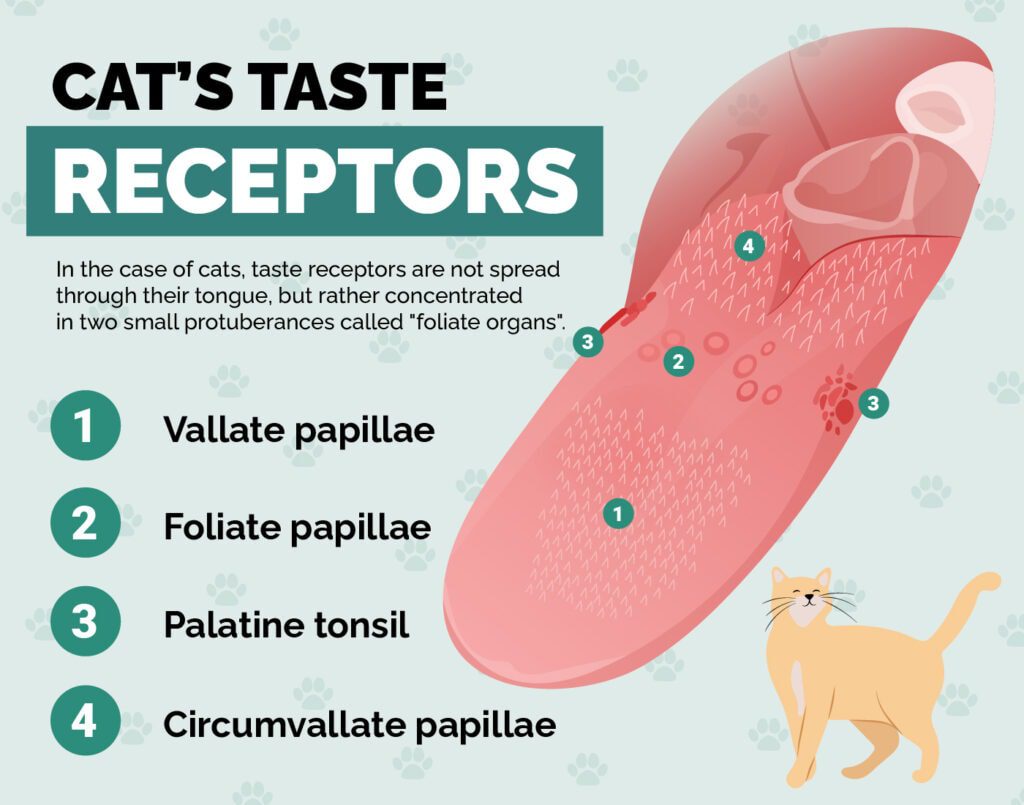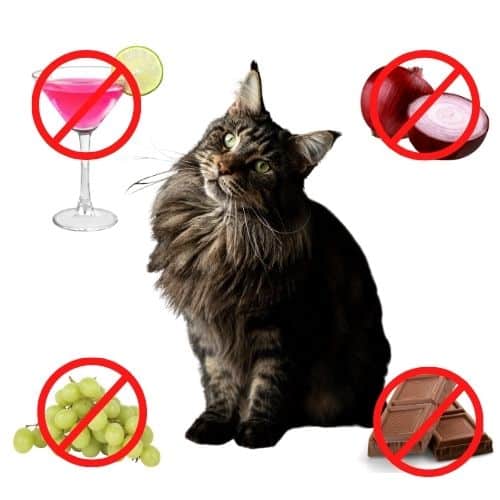Key Takeaways:
- Antifreeze is extremely toxic to cats and can be fatal if ingested.
- Cats are attracted to the sweet taste of antifreeze, making them more likely to consume it.
- Even a small amount of antifreeze can cause severe kidney damage in cats.
- It is important to store antifreeze in a secure location where cats cannot access it.
- If you suspect your cat has ingested antifreeze, seek immediate veterinary attention as early treatment can greatly increase their chances of survival.
Introduction:
Did you know that something as common as antifreeze can pose a serious threat to our feline friends? It's true! Understanding the cold truth about antifreeze and its impact on cats is not only essential for their well-being but also for our own peace of mind. In this eye-opening exploration, we will uncover the hidden dangers that antifreeze presents to cats and how we can protect them from harm. So, grab a seat and get ready to discover a world where knowledge truly saves lives.
What is antifreeze and why do cars use it?
Antifreeze is a liquid that is added to car engines to help keep them from freezing in cold weather. It is also known as coolant. Antifreeze is made up of a special chemical called ethylene glycol, which has properties that prevent water from freezing at low temperatures. This is important because if the water in a car's engine were to freeze, it could cause serious damage and make the engine stop working.
Cars use antifreeze because they have engines that generate a lot of heat when they run. The antifreeze helps to regulate this heat and prevent the engine from overheating. It also helps to keep the engine running smoothly by lubricating its moving parts. Without antifreeze, a car's engine could overheat or freeze, leading to expensive repairs or even complete engine failure.
How does antifreeze work?
Antifreeze works by lowering the freezing point of water. Water normally freezes at 32 degrees Fahrenheit (0 degrees Celsius), but when antifreeze is added to it, the freezing point is lowered to a much lower temperature, usually around -34 degrees Fahrenheit (-37 degrees Celsius). This means that even in extremely cold weather, the water in a car's engine will not freeze as long as there is enough antifreeze mixed with it.
How is antifreeze used in cars?
In cars, antifreeze is typically mixed with water in a specific ratio recommended by the car manufacturer. This mixture, known as coolant, is then poured into the radiator of the car's cooling system. The radiator circulates the coolant throughout the engine, absorbing heat and preventing it from overheating or freezing.
It's important for car owners to regularly check their coolant levels and ensure that there is enough antifreeze in their cars during the winter months. This can help prevent any damage to the engine and ensure that the car runs smoothly even in cold weather.
The dangers of antifreeze for cats: what you need to know
Antifreeze is a common household product that can be extremely dangerous for cats. It contains a substance called ethylene glycol, which is highly toxic to felines. Even a small amount of antifreeze can cause serious harm or even death to a cat. When a cat ingests antifreeze, it quickly metabolizes into toxic compounds that attack the kidneys and other organs.
How does antifreeze poisoning occur?
Antifreeze poisoning in cats usually happens when they accidentally consume it. Cats are naturally curious creatures, and they may be attracted to the sweet taste of antifreeze. They may come into contact with spilled antifreeze on the ground or lick it off their paws after walking through it. It's important to note that even a tiny amount of antifreeze can be lethal for cats, so it's crucial to keep them away from any areas where antifreeze might be present.
What are the symptoms of antifreeze poisoning in cats?
Recognizing the signs of antifreeze poisoning in cats is vital for early detection and treatment. Some common symptoms include vomiting, excessive thirst, lethargy, loss of appetite, and difficulty walking or standing. As the poisoning progresses, more severe symptoms may appear, such as seizures, rapid breathing, and coma. If you notice any of these signs in your cat and suspect they may have ingested antifreeze, it's essential to act quickly and seek veterinary care immediately.
To prevent your cat from coming into contact with harmful antifreeze:
1. Store all containers of antifreeze securely out of reach from pets.
2. Clean up any spills or leaks immediately.
3. Keep your garage or storage area where you store antifreeze inaccessible to your cat.
4. Consider using pet-safe alternatives to traditional antifreeze, such as propylene glycol-based products.
Recovery and treatment options for cats affected by antifreeze poisoning
If you suspect your cat has been exposed to antifreeze, time is of the essence. Immediate veterinary intervention is crucial for their chances of survival. The veterinarian will perform a thorough examination and may conduct blood tests to confirm antifreeze poisoning.
Treatment options for antifreeze poisoning in cats
The primary goal of treatment is to prevent the toxic compounds from causing further damage and to support the cat's organs during the elimination process. Treatment may include inducing vomiting, administering activated charcoal to absorb any remaining toxins, and providing intravenous fluids to flush out the kidneys.
Long-term care and recovery
Cats that survive antifreeze poisoning may require ongoing medical care and monitoring. Kidney damage can be severe, so regular check-ups with the veterinarian are essential. A special diet and medications may be prescribed to support kidney function. With proper treatment and care, some cats can make a full recovery, while others may have long-term health issues.
Safe alternatives to traditional antifreeze that won't harm cats:
1. Propylene glycol-based antifreeze: This type of antifreeze is less toxic than ethylene glycol-based ones.
2. Antifreeze labeled as "pet-safe" or "non-toxic": These products are specifically designed not to harm animals if ingested.
3. Diluted coolant solutions: Some coolants can be diluted with water, reducing their toxicity levels.
Remember, prevention is key when it comes to protecting your beloved feline companion from the dangers of antifreeze. By being vigilant and taking necessary precautions, you can help keep your cat safe from this hazardous substance.
Why acting quickly is crucial if you suspect your cat has been exposed to antifreeze
Recognizing the signs of antifreeze poisoning in cats
Antifreeze poisoning can be a life-threatening situation for cats, so it is essential to act swiftly if you suspect your feline friend has come into contact with this harmful substance. The first step is to recognize the signs of antifreeze poisoning. Cats affected by antifreeze may exhibit symptoms such as vomiting, excessive thirst, lethargy, difficulty walking, seizures, and even coma. If you notice any of these signs or suspect that your cat has ingested antifreeze, it is crucial to seek immediate veterinary attention.
Immediate actions to take when suspecting antifreeze exposure
When you suspect your cat has been exposed to antifreeze, time is of the essence. Acting quickly can significantly increase the chances of a positive outcome. Firstly, do not delay in contacting your veterinarian or an emergency animal clinic. They will provide guidance on what steps to take next. While waiting for professional help, try to prevent further ingestion by keeping your cat away from any remaining antifreeze and cleaning up any spills carefully. It's important not to induce vomiting unless specifically instructed by a veterinarian as some substances can cause more harm when brought back up.
Tips for preventing accidental exposure
To avoid putting your beloved feline at risk of antifreeze poisoning, there are preventive measures you can take. Store all chemicals securely in areas that are inaccessible to pets. Ensure that containers are tightly sealed and stored upright to prevent leaks or spills. When using antifreeze in your vehicle or home, be cautious and clean up any drips or spills immediately. Additionally, consider using pet-friendly alternatives like propylene glycol-based antifreezes which are less toxic to cats.
Informing others about the dangers of antifreeze
Spread awareness about the dangers of antifreeze to help protect not only your own cat but also other feline companions in your community. Share information with friends, family, and neighbors who have pets, emphasizing the importance of proper storage and handling of antifreeze. By educating others about this potential hazard, we can work together to create a safer environment for our furry friends.
Preventing cats from coming into contact with harmful antifreeze
Securing antifreeze containers and storage areas
To prevent accidental exposure to harmful antifreeze, it is crucial to secure all containers and storage areas properly. Keep antifreeze containers tightly sealed and stored in locked cabinets or high shelves that are out of reach for curious cats. Ensure that any potential leaks or spills are promptly cleaned up using absorbent materials like cat litter or sand.
Creating barriers and safe zones
Another effective way to prevent cats from accessing antifreeze is by creating barriers and safe zones within your home or garage. Use baby gates or pet doors to restrict access to areas where chemicals are stored. Designate a specific area where your cat can roam freely without the risk of encountering harmful substances.
Using bitter deterrents
Cats are known for their sensitive taste buds, so using bitter deterrents can be an effective way to discourage them from approaching potentially dangerous substances like antifreeze. There are commercially available sprays specifically designed to taste unpleasant for cats. Apply these deterrents around areas where you store chemicals or use them on surfaces that you want your cat to avoid.
Providing alternative sources of entertainment
Sometimes, curiosity leads cats into exploring places they shouldn't be. To divert their attention away from potentially hazardous areas, provide alternative sources of entertainment. Engage your cat in interactive play sessions using toys or create a stimulating environment with scratching posts, climbing trees, and puzzle toys. By keeping your cat mentally and physically engaged, they will be less likely to venture into restricted areas.
Recovery and treatment options for cats affected by antifreeze poisoning
Immediate veterinary care
If you suspect your cat has been exposed to antifreeze or is showing symptoms of poisoning, it is crucial to seek immediate veterinary care. Time is of the essence when it comes to treating antifreeze poisoning, as the toxic effects can rapidly progress. Your veterinarian will perform a thorough examination and may conduct blood tests to confirm the presence of ethylene glycol, the toxic component in antifreeze.
Treatment options for antifreeze poisoning
The treatment for antifreeze poisoning typically involves several steps. The first priority is to prevent further absorption of the toxin by inducing vomiting or administering activated charcoal. Your veterinarian may also use intravenous fluids to flush out the kidneys and help prevent kidney damage. In severe cases, additional treatments such as hemodialysis or administration of antidotes may be necessary.
Importance of follow-up care
After initial treatment, it is essential to follow your veterinarian's instructions for ongoing care at home. This may include administering medications, monitoring fluid intake and output, and regular check-ups to assess kidney function. Prompt veterinary intervention combined with diligent aftercare can significantly improve the chances of a successful recovery for your beloved feline companion.
Preventing future incidents
Once your cat has recovered from antifreeze poisoning, it is crucial to take preventive measures to avoid any future incidents. Implementing secure storage practices for chemicals, creating barriers or safe zones within your home or garage, and providing alternative sources of entertainment can help minimize the risk of exposure to harmful substances. Regularly inspect your surroundings for any potential hazards and address them promptly to ensure the safety and well-being of your cat.
Safe alternatives to traditional antifreeze that won't harm cats
Propylene glycol-based antifreezes
One safe alternative to traditional antifreeze is propylene glycol-based antifreeze. Unlike ethylene glycol, which is highly toxic to cats, propylene glycol is considered relatively safe. It has a lower toxicity level and is less likely to cause severe harm if accidentally ingested by pets. When purchasing antifreeze, look for products labeled as "pet-friendly" or "safe for animals," indicating that they are formulated with propylene glycol.
Antifreeze additives
Another option to consider is using antifreeze additives. These products can be added directly to conventional antifreeze, making it less toxic if consumed by pets. Antifreeze additives work by altering the chemical composition of ethylene glycol, reducing its toxicity without compromising its effectiveness in preventing freezing.
Consulting with professionals
When exploring alternative options for antifreeze, it is always advisable to consult with professionals such as automotive technicians or veterinarians who have expertise in this area. They can provide valuable insights and recommendations based on their knowledge and experience.
Educating others about safe alternatives
Spread awareness about safe alternatives to traditional antifreeze among fellow pet owners and members of your community. By sharing information about pet-friendly options like propylene glycol-based antifreezes and additives, you can help others make informed choices that prioritize the well-being of their furry companions.
In conclusion, antifreeze is a dangerous substance for cats. It can cause serious harm or even death if ingested. It is important to keep antifreeze stored safely and clean up any spills immediately to protect our feline friends.
How long does it take for antifreeze to affect a cat?
If you believe that your pet has been exposed to antifreeze or leaked water coolant, it is crucial to take them to a veterinarian right away. Symptoms of antifreeze poisoning may appear 30 minutes after ingestion, while signs of kidney failure may not be noticeable until two or three days later.
Can cats survive antifreeze poison?
Immediate and intensive veterinary treatment can potentially increase the chances of survival if the cat has consumed antifreeze. Unfortunately, even with prompt veterinary care, drinking ethylene glycol is often fatal for most cats.
Does antifreeze repel cats?
Cats are drawn to ethylene glycol because of its sweet taste. If antifreeze spills or leaks onto garage floors or driveways, many animals, including cats, may willingly consume it. However, ethylene glycol has a limited safety range, meaning that even a small amount can be toxic for a cat if ingested.
How do you protect a cat from antifreeze poisoning?
When veterinarians suspect or have confirmed that a cat has ingested antifreeze, they may induce vomiting and administer medication through an IV tube to prevent the cat's kidneys from further processing the poison.
How long does it take for a cat to show signs of poisoning?
It may take 3 to 4 days for certain toxins to have an impact on the body. The specific symptoms experienced by a cat will vary depending on the specific toxin it has been exposed to.
Can a cat live after drinking antifreeze?
After being consumed, antifreeze can be absorbed by the body within a span of 40 to 60 minutes. Antifreeze is highly toxic for cats, and even a small amount ingested can lead to serious symptoms of poisoning and potentially fatal consequences.

















